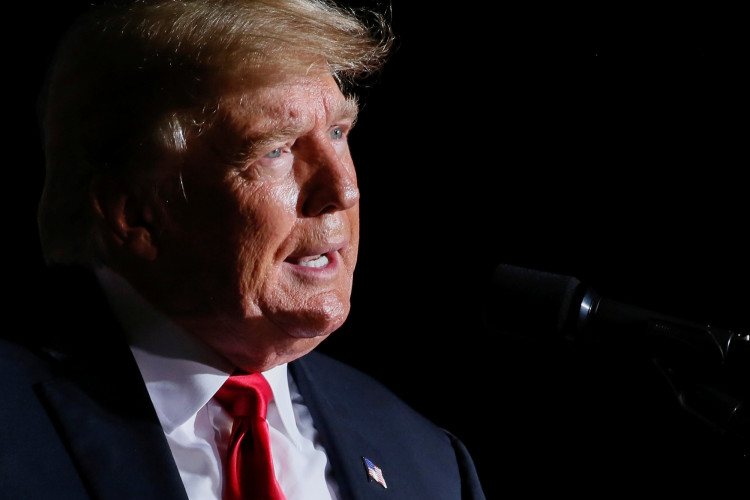In a significant development in the Georgia criminal case against former President Donald Trump and his allies, Superior Court Judge Scott McAfee has thrown out some of the charges related to the alleged solicitation of violation of oath by a public officer. The partial dismissal leaves most of the sprawling racketeering indictment intact, with Trump now facing 88 charges across the four criminal indictments in Georgia, New York, Washington, D.C., and Florida.
Judge McAfee ruled that six charges in the 41-count indictment lacked the required detail about the underlying crime the defendants were allegedly soliciting. Trump was named in three of the dismissed counts, which were related to pressuring members of the Georgia legislature to unlawfully appoint presidential electors and the January 2021 phone call with Georgia Secretary of State Brad Raffensperger, in which Trump asked Raffensperger to "find" the votes that would win him the state.
"The Court's concern is less that the State has failed to allege sufficient conduct of the Defendants - in fact it has alleged an abundance. However, the lack of detail concerning an essential legal element is, in the undersigned's opinion, fatal," McAfee wrote in Wednesday's order. "As written, these six counts contain all the essential elements of the crimes but fail to allege sufficient detail regarding the nature of their commission, i.e., the underlying felony solicited."
Despite the dismissal of these charges, McAfee emphasized that the alleged conduct could still be relied upon by prosecutors as part of the larger racketeering charge, which forms the heart of the Georgia case. "This does not mean the entire indictment is dismissed," he wrote.
CNN Senior Legal Analyst Elie Honig described the ruling as "an unforced error by prosecutors and an undeniable setback," noting that while most of the charges remain intact, the judge has thrown out six charges for being legally defective. "Essentially, prosecutors charged Trump and others with asking Georgia officials to violate the Constitution, but prosecutors failed to specify any underlying constitutional provision," Honig explained.
Michael Moore, another CNN Legal Analyst and former U.S. attorney, suggested that McAfee's action may indicate he doesn't expect the case to go to trial this year. "This is a standard motion from the defense, but it puts another 'cut' on the case ...and cases like this one often can suffer death by a thousand cuts," Moore said.
Steve Sadow, Trump's lead defense lawyer in the Georgia case, praised the ruling as "the correct legal decision," stating that the dismissed counts falsely claimed Trump solicited Georgia public officials to violate their oath of office. "The ruling is a correct application of the law, as the prosecution failed to make specific allegations of any alleged wrongdoing on those counts," Sadow said in a statement.
Jeff DeSantis, a spokesman for the Fulton County district attorney's office, said the ruling is being reviewed. The prosecution has the option to pursue another indictment addressing the issues identified by McAfee or seek an appeal of his ruling.
The new ruling did not address the ethics allegations brought against Fulton County District Attorney Fani Willis by the defendants. McAfee has pledged to issue a ruling on that issue by the end of the week. "I plan to stick to my timeline," McAfee told CNN on Wednesday morning, without elaborating.
As the legal battle continues, the fate of the Georgia case against Trump and his allies remains uncertain. While the partial dismissal of charges is a setback for prosecutors, the core of the indictment, including the powerful RICO charge, remains intact. The upcoming ruling on Fani Willis' disqualification could have far-reaching implications for the future of the prosecution, as it would require assigning the case to another district attorney or prosecutor if she is removed from the case.






